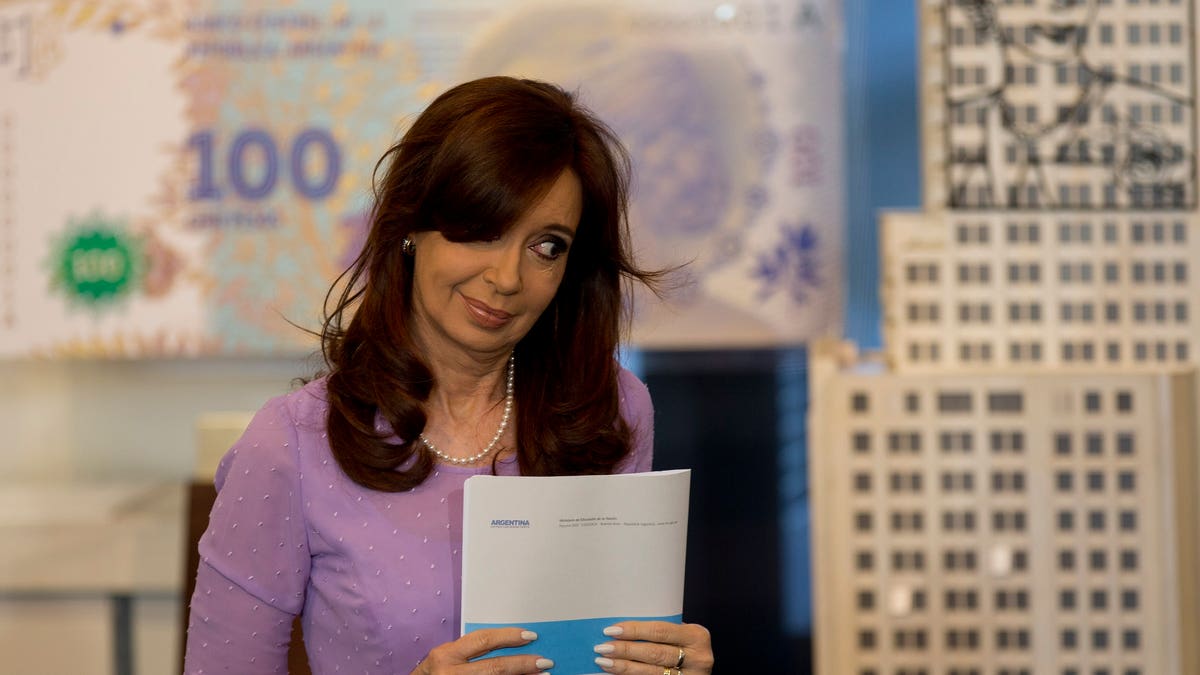
President Fernandez during an event at the government palace in Buenos Aires, Argentina, Feb. 11, 2015.
An Argentinian government official is urging U.S. Secretary of State John Kerry to make the alleged involvement of Iranians in the deadly 1994 bombing of a Jewish community center part of the nuclear talks with Iran, according to published reports.
Foreign Minister Hector Timerman sent a letter to Kerry describing the request to include the accusation of Iranian involvement as one that his government has made before, according to various publications, including Reuters, Clarin, a major Argentinian daily, and the Buenos Aires Herald.
The attack on the AMIA Jewish community center on July 18, 1994 killed 85 people.
In a statement issued as a response, the U.S. Department of State said it "would not be appropriate" to raise the issue in the context of nuclear talks.
"We have continued to offer our assistance in the investigation of the AMIA case and the tragic death of [prosecutor] Nisman. However, the nuclear talks with Iran are only focused on addressing the concerns of the international community on the Iranian nuclear program and it would not be appropriate to raise this issue in the nuclear talks," reads the statement posted on Clarín's website.
At a press conference to announce the letter addressed to Kerry as well as to Israeli officials, Timerman added that his nation is "greatly concerned" other countries are playing out conflicts on its soil.
He said Argentina had welcomed people from around the world who flee persecution, and that it did not want to see foreign conflicts unfold in his nation, according to the Buenos Aires Herald.
“In my meetings with the leaders of these (religious) communities, I always reiterated them the firm position of my government to prevent that historical clashes that take place in their country of origin be settled in Argentina,” Timerman said. “The Argentinian people do not have to tolerate, much less to suffer, that our country becomes a theater of political operations, intelligence, or worse, a theater of events and more severe actions, conflicts that are completely unrelated to our history, our idiosyncrasy and our way of life.”
Timerman conceded that Argentina itself has failed to "detain, judge or condemn the perpetrators” of the AMIA bombing, the Herald reported. The foreign minister also said that the Argentinian Supreme Court had not made progress in the investigation into the attack against the embassy of Israel in Buenos Aires City that took place in 1992.
The bombing has been the focus of a political scandal in Argentina that included Timerman as well as President Cristina Fernández de Kirchner.
In recent days, the Argentine prosecutor who took over the investigation of the 1994 bombing following the death of prosecutor Alberto Nisman has taken the next step in bringing formal charges against Fernández de Kirschner for allegedly trying to cover up Iran's role in the attack.
Prosecutor Gerardo Pollicita's decision to go forward with the case is significant because it sets the stage for a close examination of the investigation that prosecutor Nisman was building before he was found dead Jan. 18.
Nisman had accused Fernández de Kirchner, Timerman and others in her administration of brokering the cover-up in exchange for favorable deals on oil and other goods from Iran.
Fernández has strongly denied the accusations, and Iran has repeatedly denied involvement in the bombing, which killed 85 people.
Psaki, the U.S. State Department spokeswoman, said: "The special prosecutor's death must not stop the pursuit of those responsible for this brutal terrorist attack. We have contributed information where we can, in the past, and that will continue."
Pollicita will present his finding to Judge Daniel Rafecas, the federal magistrate assigned to the case who will ultimately decide whether to dismiss it or indict the president and others named in the report.




